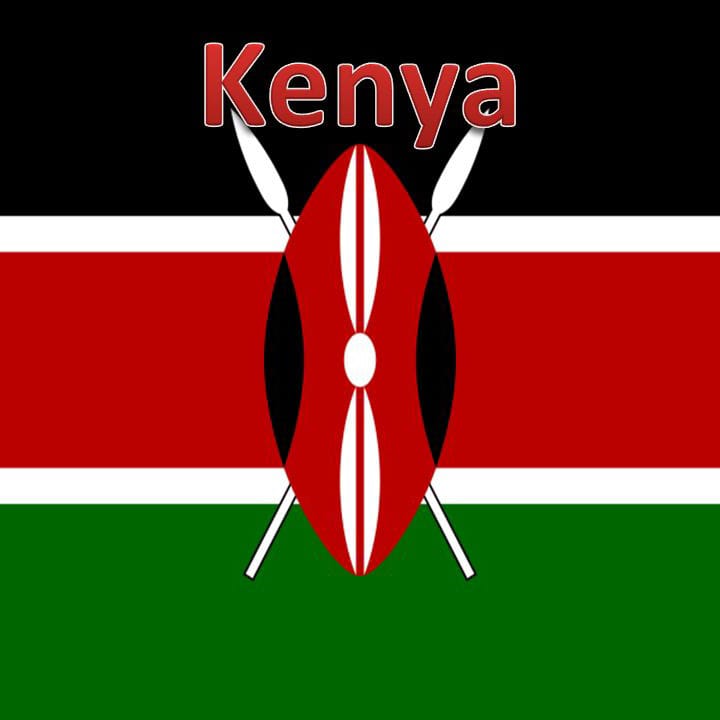Madfun.com recently made headlines in Kenya by organizing one of the largest music events the country has seen in recent years.
The event company flew in Nigerian superstar Burna Boy for a concert at Uhuru Gardens, drawing thousands of fans from across Nairobi and beyond. Behind the lights, the stage, and the spectacle, however, was a story that didn’t make it onto the event posters.
The entire show was backed by Odibets, one of Kenya’s most powerful and controversial betting companies. According to sources familiar with the arrangement, Burna Boy was paid roughly Sh128 million for the performance alone.
That figure does not include international flights, five-star accommodation, security, logistics, or local promotion. By any measure, it was an enormous budget. And the obvious question for anyone paying attention was simple where is all this money coming from? Odibets is run by Andrew Aligula and Nelson Kigome.
Both men have kept ownership of the company within their immediate families. Andrew’s wife is listed as a director, while Nelson has appointed his mother to the same role. This structure insulates the business from external oversight and limits transparency around decision-making and control. On its surface, the firm appears to be another player in a competitive sector, but the internal setup tells a different story one of concentrated power behind a company that is making enormous amounts of money in a highly sensitive industry.
Insiders at the Betting Control and Licensing Board have raised concerns that the influence of these individuals extends beyond their private offices. According to someone working closely with the board, Andrew Aligula may have significant sway over the very institution responsible for regulating companies like his.
While there has been no public confirmation of this connection, the suggestion alone is troubling. If true, it would mean that the people making money from betting may also have a say in how the rules of the game are enforced.
What makes this even more troubling is the timing. The Burna Boy concert took place in January. Just a few months later, in April, the government launched a major crackdown on betting firms across the country.
More than fifty operators were shut down for failing to meet licensing requirements. Advertising was frozen. Media campaigns were halted. A full ban on gambling promotion was introduced across television, radio, and digital platforms. It was the boldest move the state had made in years to address what many consider to be a growing public health crisis. Yet even as others disappeared, Odibets seemed untouched.
The company remained active. Its platforms stayed live. Its public image only grew stronger. This pattern is not new. Over the past several years, betting has quietly embedded itself in Kenyan daily life. Apps are installed on millions of phones. Odds are discussed as casually as sports scores. Teenagers, university students, and unemployed workers are all placing bets every single day, hoping to turn a few shillings into something more.
The vast majority of them do not win. But they keep going, often driven by habit, pressure or the belief that their luck is just one spin or match away from turning. While individuals chase their luck, companies like Odibets collect steady, guaranteed revenue. And while those profits are generated in small, relentless amounts from ordinary Kenyans, the spending at the top tells a very different story.
The same company that thrives off tiny bets is now throwing eight-figure budgets at luxury concerts. The same money that causes stress and financial strain in many homes is being used to fly in celebrities, secure VIP packages, and brand entire weekends around entertainment.
Madfun, for its part, presents itself as a convenient event company for organizing concerts, booking flights, and selling tickets. The idea is clean, efficient, and tech-savvy. But there is nothing neutral about the way this company operates.
It is not an independent success story. It is a tool backed by betting profits, now being used to rebrand and redirect public attention away from the costs of gambling and toward glamour, music, and temporary celebration.

What makes this harder to swallow is the silence that surrounds it. There is no serious debate happening in public about the ethics of spending gambling money on luxury. There is no effort to address the growing number of Kenyans who have slipped into debt chasing betting wins that never arrive.
There are no official answers to the allegations of regulatory influence. And while that silence continues, the shows will go on, the platforms will keep expanding, and the damage will remain tucked away where most people don’t see it.
Forget the Mexican Cartels: How Kenya’s Betting Lords Are Laundering Pain into Profit
There is a long history of criminal enterprises finding creative ways to clean dirty money, and one of the most effective has always been through respectable-looking businesses.
Over the years, global law enforcement agencies like the FBI have uncovered how drug cartels in Mexico, Colombia, and other countries move the proceeds of narcotics through real estate, hospitality, transport companies, and offshore accounts.
These are not operations led by reckless street dealers but by individuals who understand how to exploit weak institutions, legal loopholes, and global financial systems that are only too happy to look the other way if the paperwork looks clean enough.
What they perfected was a process of collecting illicit income, funneling it into legitimate enterprises, and coming out on the other side with money that looks polished, legal, and entirely unremarkable. The cartels have always understood that the real power lies not just in making money, but in making it disappear and reappear somewhere else in a form that no one questions.
This same script is now being used in Kenya, but the product isn’t cocaine. It’s betting. It’s the daily addiction playing out on millions of mobile phones across the country. Instead of risky border runs, this operation is driven by SMS alerts, flashy influencer ads, and apps that promise quick fortune while quietly draining people dry.
The numbers are staggering. Betting companies in Kenya take in billions of shillings, mostly from young people, students, unemployed workers, and underpaid employees looking for a miracle. A majority of them lose.
And as they lose, a small elite gains. At the heart of this machine is Odibets, one of the most aggressive and high-profile betting platforms in the country. But Odibets is just the storefront. Behind it are individuals who are playing a much bigger game. Andrew Aligula and Nelson Kigome are not just running a betting site.
Their names are connected to a growing network of companies and interests that stretch well beyond online gambling. They are also behind VasPro Technologies, a tech company where Andrew acts as Director of Marketing and Nelson serves as CTO.
They are involved in hospitality through ownership of a high-end hotel located in Muthaiga, a location notable not just for its prestige but for its proximity to the United States embassy. The same influencers who push betting platforms on social media are repurposed to advertise the hotel, keeping all promotional efforts neatly contained within a trusted brand ecosystem.
They are also active directors in a UK-registered firm, Money Transfer International Limited, which initially had five directors, but saw two resign, leaving the circle smaller and more tightly controlled. The pattern is hard to miss.
Create platforms that bring in vast amounts of cash from vulnerable people, then filter that money through a web of respectable businesses and cross-border holdings that disguise its origins. This kind of structure is not a coincidence. It’s an intentional system designed to quietly move large sums of money out of Kenya and into offshore accounts, property holdings, and international ventures where it becomes difficult to trace. And while this is happening, the Kenyan government remains largely silent.
The Betting Control and Licensing Board, the body that is supposed to oversee the industry, is nowhere to be seen. Its role has become so ineffective that games like Aviator, well-known for their psychologically manipulative design, continue to operate freely without any serious oversight.
In other jurisdictions, similar platforms have faced restrictions, fines, and even bans due to their predatory nature. In Kenya, they are actively promoted.
The lack of enforcement is not accidental. It’s the result of influence, lobbying, and quiet deals that protect profits while the public carries the cost. What makes this even more dangerous is how normalized it has all become.
The Kenyan public is flooded with betting ads, giveaway campaigns, and celebrity endorsements that present gambling as harmless fun. But beneath the surface, families are breaking under debt, young people are losing their savings, and the mental health toll continues to rise.
Universities are reporting higher cases of financial distress directly linked to betting, while a growing number of teenagers have become daily gamblers. And yet, the infrastructure that supports this industry continues to expand.
Odibets and its sister companies are opening new businesses, investing in new platforms, and scaling their influence while paying as little tax as possible and operating with next to zero transparency. This is not just a policy failure.
It’s a capture of the system by a few individuals who understand that the true key to wealth is not just making money, but controlling the conditions under which it can be questioned. The parallels to international money laundering syndicates are impossible to ignore.
The FBI knows this model. It has seen it play out in Panama, in Dubai, in Cyprus. Kenya is another staging ground, made easier by silence, fear, and a public too overwhelmed to fight back. If Kenya continues to allow this, then it must admit that it has become a place where addiction is monetized, where regulation is a joke, and where cartels do not need guns or drugs to win. All they need is a betting license, a few social media influencers, and a hotel near an embassy.

